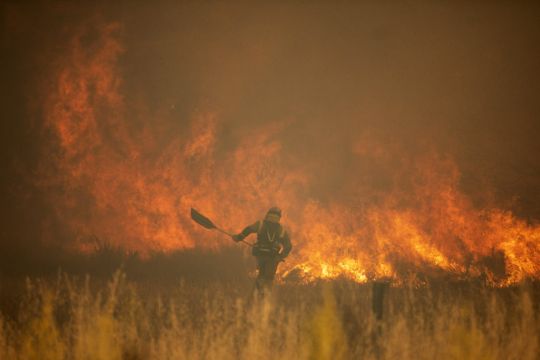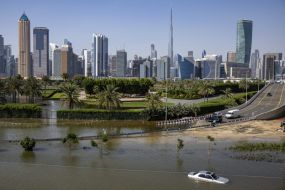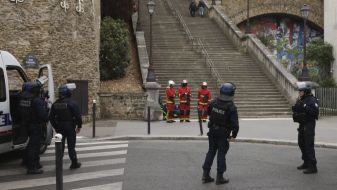Extended drought conditions in several Mediterranean countries, a heat wave last week that reached northern Germany and high fuel costs for aircraft needed to fight wildfires have heightened concerns over wildfires across Europe this summer.
“Much of the continent is in drought,” said Cathelijne Stoof, an environmental science professor at the Netherlands’ Wageningen University, who called the wildfire outlook “very challenging across Europe”.
Fires last summer burned more than 4,250 square miles of land in Europe – an area more than four times the size of Luxembourg. About half of the damage was in the European Union.

And, experts say, Europe’s wildfires are not just a problem for the southern, hotter countries.
Catherine Gamper, a climate change adaptation specialist at the Organisation for Economic Cooperation and Development (OECD), said: “What scientists are warning us is that (fires) are obviously going north and in countries such as the UK, in countries such as Germany as well as in Scandinavian countries, in the future, we need to expect wildfires to happen more often.”
Wildfires across Spain have destroyed tens of thousands of acres of wooded land, though a recent sharp drop in temperatures is helping firefighters contain the blazes.
Spain’s problems began with the arrival in spring of the earliest heat wave in two decades.
Temperatures as high as those normally recorded in August rose above 40C in many Spanish cities.

Neighbouring Portugal also saw its warmest May in nine decades, and in France the month was the hottest on record.
“As a result of climate change, heatwaves are starting earlier and are becoming more frequent and more severe because of record concentrations of heat-trapping greenhouse gases,” the World Meteorological Organisation said last week.
“What we are witnessing today is a foretaste of the future.”
Despite the extensive planning, early-warning surveillance, and prediction models, preparing for wildfires remains a huge challenge. The EU is expanding a shared pool of planes and helicopters on stand-by this summer to provide cross-border support and is expected to partner with more nations outside the bloc.

“It’s very difficult to predict wildfires,” said Marta Arbinolo, an OECD policy analyst and climate adaptation and resilience specialist.
“We do know that summer (of) 2022 is predicted by weather forecasts to be particularly warm and dry, possibly even more than 2020 or ’21, which was the driest and warmest summer in Europe,” she said.
“We can expect that the risk of wildfires in Europe for the summer might be very high.”
In Greece, which suffered some of Europe’s most devastating fires last August, authorities say higher fuel costs have added to challenges facing the fire service, which relies heavily on water-dropping planes to battle blazes in the mountainous country.
Greece will begin using fire retardant chemicals in water drops this year, while the EU is sending more than 200 firefighters and equipment from France, Germany and four other countries to Greece to remain throughout the summer.

Wildfire seasons are also getting longer.
“The concept of a fire season is losing its meaning right now. We have the fire season all year-round,” said Victor Resco de Dios, professor of forest engineering at Lleida University, in Spain’s north-eastern Catalonia region, which has been hit hard by summer fires.
“The main changes we are seeing with climate change is a longer duration of fire seasons.”
The OECD’s Ms Gamper and Ms Arbinolo point out that some of the worst fires have actually brought positive developments such as the EU’s Civil Protection Mechanism that facilitates rapid cooperation between countries in emergencies.
European countries, they argue, are also opening up to incorporate risk reduction in their planning, rather than simply boosting their firefighting resources.







